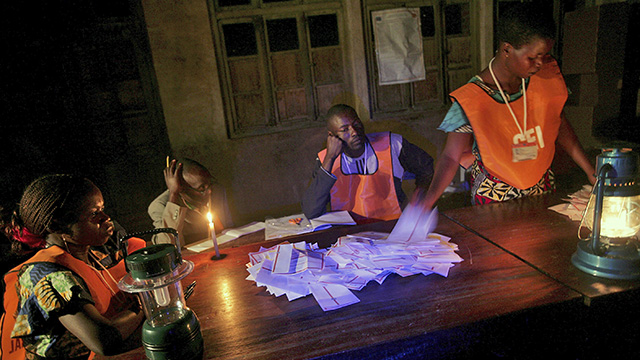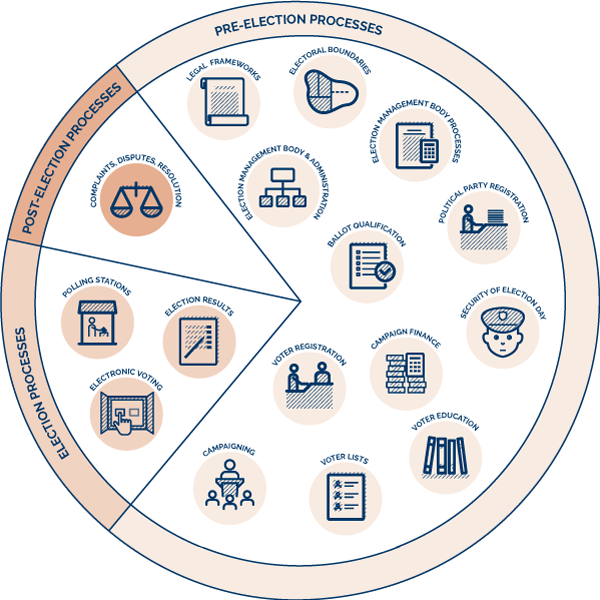Elections are a Process
Elections are a process, not an event. Every election comprises numerous elements and involves multiple institutions and actors throughout the pre-election, election day and post-election periods, all of which affect the transparency, inclusiveness, accountability and competitiveness of the election.

In the pre-election period, legislatures and state institutions develop or refine the legal and procedural framework in which the elections are conducted. EMBs conduct a range of activities in preparation for election day and determining the electoral outcome. Depending on the type of election and electoral system, authorities may define electoral boundaries EMBs or other state institutions register political parties and determine which parties and/or candidates qualify for a place on the ballot They also accredit international and citizen (domestic) observers, candidate and party agents, and media to witness electoral procedures. EMBs or other responsible institutions typically undertake a voter registration process to make sure all eligible citizens are on the voter list. Voters may need to actively take steps to register, and in some cases have opportunities to correct or update information on the list. Meanwhile, political parties and candidates campaign to attract support for their political platforms. EMBs and civil society organizations conduct voter education so that citizens understand election procedures and can make informed choices in the voting booth. EMBs also conduct the administrative and logistical preparations for polling, including procuring and delivering materials, as well as recruiting and training pollworkers.
On election day, eligible voters cast their ballots at polling stations Election officials facilitate voting and, when voting ends, conduct the ballot counting process. Accredited observers from political parties and candidates, nonpartisan civil society groups and international organizations, and media often monitor the voting and counting processes. The vote counts are sent to tabulation centers and ultimately, to a final vote tabulation center, where initial or preliminary results are processed. Electoral disputes and complaints concerning various processes before and on election day are to be resolved through peaceful, legal means by using EMB complaint procedures and the courts. It often takes several days or sometimes weeks for EMBs to release final, verified results.
The post-election period provides an opportunity for stakeholders to evaluate the process and undertake necessary reforms. The EMB and civic groups evaluate the election process and define ways to reform and strengthen elements within each phase. This critical time between elections is also used to prepare for future elections, including updating voter lists and addressing issues with the legal framework or institutional management.
Elections are a Process

